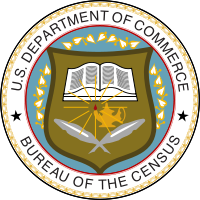Money remains a major barrier in the quest for educational equality in America. With annual costs of more than $50,000 for some private colleges and universities and fees of more than $20,000 at some state-operated higher educational institutions, “sticker shock” tends to push people away from attaining higher education. It is true that there are vast financial aid resources available but often full financial need cannot be met and prospective students are faced with the prospect of going into substantial debt in order to obtain a college degree.
The lack of money for higher education is of particular concern to the African American community. Previous research has shown that there are large numbers of young Black Americans from low-income families who don’t even bother to consider pursuing higher education because of the cost.
 Poverty impacts a large segment of the African American population. The U.S. Census Bureau has released its annual report on income and poverty in the United States. The report shows that in 2015, 10,020,000 African Americans were living below the official poverty line in the United States. This was 24.1 percent of the entire Black population. In contrast, only 9.1 percent of the non-Hispanic White population was living in poverty. The Black-White poverty rate gap where African Americans are about three times as likely to be poor as Whites, has remained virtually unchanged for the past 45 years.
Poverty impacts a large segment of the African American population. The U.S. Census Bureau has released its annual report on income and poverty in the United States. The report shows that in 2015, 10,020,000 African Americans were living below the official poverty line in the United States. This was 24.1 percent of the entire Black population. In contrast, only 9.1 percent of the non-Hispanic White population was living in poverty. The Black-White poverty rate gap where African Americans are about three times as likely to be poor as Whites, has remained virtually unchanged for the past 45 years.
The poverty rate is even more severe for Black children. In 2015, there were 3,651,000 African Americans under the age of 18 in the United States who were living in poverty. This was 32.9 percent of all African American children. For White children, 12.1 percent were living in poverty.
The full report, Income and Poverty in the United States, 2015, may be downloaded by clicking here.











There is no question that there is a wide disparity between African Americans access to higher education and their white counterparts. The issue becomes whether the programs and services that have been in place to provide the financial resources for students to afford college attendance can keep up with the rising costs of higher education, especially four year colleges and universities. If this financial impediment continues to be a problem for college access by Black students, the implications are very dire in terms of having greater numbers of college educated citizens within this country. There should be a holistic approach taken by federal, state, local, and non-for-profit agencies to address this persistent challenge.
It may seem counterintuitive, but when college tuition increased the number of African Americans enrolled in college also increased.
What is the source of your data?